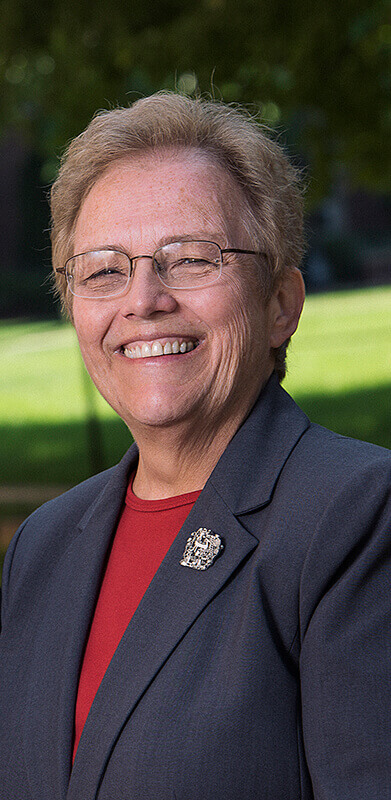May 6, 2020
Public health nurse on the ‘worried well’ during COVID-19

With the COVID-19 pandemic, there is an increase in the “worried well” population. Worried well individuals are those who are healthy but believe they have an illness based on what is going on around them. (Unsplash)
WEST LAFAYETTE, Ind. — As the numbers increase of Americans tested and those confirmed to have COVID-19, many people are experiencing a new level of anxiety.
A Purdue University nursing expert says there are ways to handle stress, anxiety and being a member of the “worried well” population.
Pamela Aaltonen is a professor emerita of nursing in the School of Nursing in Purdue’s College of Health and Human Sciences, and immediate past president of the American Public Health Association. Her main research specialized in the use of information technology in the public health system. She also researched point-of-distribution preparedness among public health agencies.
“It’s understandable to be part of the ‘worried-well’ population; many of us have been in this group at some point in time,” Aaltonen says. “The term worried well describes persons who are relatively healthy but who believe they have an illness or are likely to get an illness based on what is going on around them.
“One concern during a pandemic is that it is not easy, and sometimes even risky, to seek in-person health care. Conversations individuals might typically be having with one’s health care providers are not occurring and clarity of the meaning of symptoms are left undiscussed. The use of telemedicine is filling this gap in some communities.”
Part of the confusion with COVID-19 for the “worried well” may come from when to seek medical care by either calling one’s physician or going to the emergency department.
“Our objective is to stay out of the emergency department unless that’s the level of care that we actually need,” Aaltonen says. Each of us has a responsibility to monitor our health and seek care immediately if experiencing difficulty breathing, shortness of breath, confusion, persistent pain or pressure in your chest, difficulty speaking, or face drooping. Medical emergencies continue in the midst of a pandemic and may or may not be related to COVID-19.
Anxiety that the worried-well experience is likely linked to the information to which we are exposed and the uncertainty on what lies ahead for us and our loved ones. Evolving and varying recommendations add to our confusion and anxiety.” Aaltonen says people should look to credible voices and trusted, reliable resources for guidance, such as the Centers for Disease Control and Prevention, state and county health departments, and one’s own health care provider. Stay up-to-date on what is happening but avoid information overload.
 Pamela Aaltonen, a professor emerita of nursing in Purdue’s College of Health and Human Sciences’ School of Nursing (Purdue University photo)
Download image
Pamela Aaltonen, a professor emerita of nursing in Purdue’s College of Health and Human Sciences’ School of Nursing (Purdue University photo)
Download image
Aaltonen also points out the struggle to address our needs to be social while under stay-at-home orders. “Look for opportunities to interact with others using virtual media, a telephone or by conversing outdoors at a safe distance,” she says. “Talking with others, especially those who don’t feed anxiety, can help reduce some of the unsettledness that feeds the worried well.” Staying engaged with friends and families and tackling projects we have long put off allows us to focus on something other than COVID-19 and can alleviate boredom and frustration. Being physically active, consuming healthy foods, and finding ways to relax are also part of the mix of weathering the pandemic.
About Purdue University
Purdue University is a top public research institution developing practical solutions to today’s toughest challenges. Ranked the No. 6 Most Innovative University in the United States by U.S. News & World Report, Purdue delivers world-changing research and out-of-this-world discovery. Committed to hands-on and online, real-world learning, Purdue offers a transformative education to all. Committed to affordability and accessibility, Purdue has frozen tuition and most fees at 2012-13 levels, enabling more students than ever to graduate debt-free. See how Purdue never stops in the persistent pursuit of the next giant leap at purdue.edu.
Writer: Matthew Oates, 765-586-7496 (cell), oatesw@purdue.edu, @mo_oates
Source: Pamela Aaltonen. Please contact Matthew Oates for interview requests. She is available for phone and web-based conference interviews.
Note to Journalists: A photo of Pam Aaltonen is available on Google Drive. A video featuring Pam Aaltonen discussing the “worried well” is available online. Aaltonen has talked to numerous media outlets about COVID-19, basic safety tips, as well as the importance of public health.

